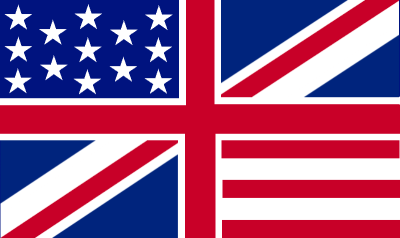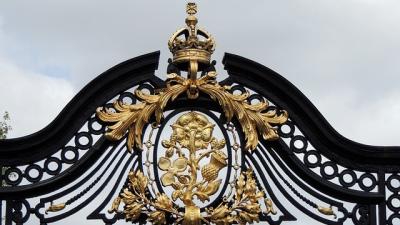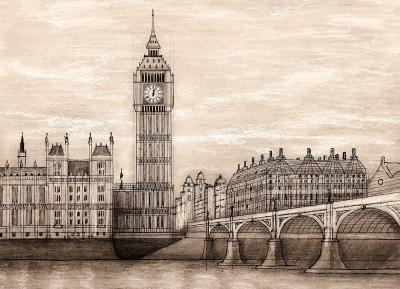Anglospherical: The Region Report on the Anglosphere - April 2023
As we learnt in the March Region Report on the Anglosphere (LINK), Scotland does not want to be left behind in the race to replace heritage British leaders with those from the former British colonies of Asia. Toward this end, one could choose qualified leaders hailing from the Indian Sub-Continent as England is busy doing. But Scotland also desperately wants to show its progressive chops. London has a Muslim mayor, whose family is from Pakistan, and since Mr Sadiq Khan was a solicitor, he also meets the professional qualification of the new leadership class. He also leans into the technocratic-competence model of Big Leadership.
Thus, Scotland’s choice for the new Scottish National Party leader, and thereby First Minister, was Mr Humza Yousaf, a Muslim, with family from the Punjab. He, however, has not been qualified by elite British schools and universities, has had no other profession than politics, and might well lack the qualities of mind that technocrats need to technocratise. But, having checked all the other boxes, especially the one that seems to be to the left of England – having a national Muslim leader like other big countries do – Scotland could not help itself in choosing Mr Yousaf. Their choice was also a direct rejection of a more qualified female candidate, who reflected Scotland’s own past back on itself.
The Scots narrowly rejected Mrs Kate Forbes (52% to 48% in the second round of voting), with the loudest voices citing her personal religious stances on abortion (mostly against), traditional marriage (pro), and the place of sex within marriage (also pro), as reasons not to elect her. They rejected her, a member of a traditional Scottish ‘free church’, based on the belief that Yousaf, a practicing Muslim, would be more liberal on these issues. To be fair, Mr Yousaf has said publicly that he is for the ‘right things’ and against the ‘bad things’ – apparently he even said he was pro-gay marriage. However, he was the only minister to miss the vote on ‘equal marriage’ in 2014 (See criticism here).
Mr Yousaf has consistently claimed that on the day in question he was meeting with representatives of Pakistan on a matter of great importance to his ‘community.’ No record or minute of this meeting has ever emerged. But his ‘community’ might easily have understood this as a wink and a nod in their direction: the government of Pakistan has unambiguous views on ‘marriage equality’.
Perhaps Scotland has rejected Mrs Forbes for a practising member of the Scottish Pakistani Muslim community not for matters relating to his person, but because of the great tradition of justice toward homosexuals in the Muslim world? They might have admired the sixty member Organisation of the Islamic Congress (the second largest international organisation!) for their sponsorship of scores of Sharia floats in Gay Pride Parades, or the great tradition of AIDS research that Sultan al-So-and-So or Mr African President-for-Life funds. That is, if any of those existed, they might be admired in contemporary Scotland.
Put simply, Mr Yousaf is an example of wishful thinking, as well as naked tokenism, in a way that England’s choice of Sunak and Braverman, or even Mr Sadiq Khan, were not. Mr Yousaf’s selection is the political equivalent of the introduction of foreign cuisines into school lunches, or the injection of foreign religious elements into the coronation of a monarch (about which, see next month’s region report). It seems merely decorative. And for most persons it is merely an affectation or ‘a little spice.’ But for some it indicates the participation of their ‘community’ in national politics, for better and sometimes for (much) worse.
Maybe too much is being made of the leadership of pokey little Scotland. After all, 48% of her party saw through the competence gap to vote for Mrs Forbes, a person routinely depicted as a bigot in the press for her traditional positions on social matters. One might hope that the quality of (political) character rather than the colour of skin – or its contemporary equivalent of ‘community membership’ – would mean more to the electorate. However, in comparing the 2016 election to the 2021 election, one wonders if the Scots are not committed to much decoration and affectation without a clear reason or direction other than ‘progress.’ They seem to have filled their heritage parties with leaders of whom none seem obviously to be related to the ancestral Scottish population, whilst imagining that the direction Scotland will take could remain unaltered if turned over to, say, ‘community organisers’.
Compare the results of the past two national elections.
2016 elections top four parties leading candidate:
SNP - Humza Yousaf
Labour - Johann Lamont
Conservative - Thomas Haddow
Liberal Democrats - Isabel Nelson
2021 elections top four parties leading candidate:
SNP - Humza Yousaf
Labour - Zubir Ahmed
Conservative - Sandesh Gulhane
Green - Nadia Kanyange
Source: https://en.wikipedia.org/wiki/Humza_Yousaf
Life at the bottom
The list of the most wanted criminals of the UK (available at: https://nationalcrimeagency.gov.uk/most-wanted) indicates a similar societal change, but with greater diversity of background (Europeans, Arabs, Africans, and Asians appear here), as well as clearer implications for the uncertain future of the polity. As of May 15th, 2023, based only on surnames and facial characteristics, 15 of the 24 most wanted criminals would seem to be descended from non-British stock, even if they might have been born in Britain. It might also be the case that persons on this list who would seem to be heritage Brits are actually immigrant Canadians or Australians or Luxembourgians, who happen to have English-seeming names. In which case, the percentage of minority or foreign-born criminals would be even higher. Over the past few months, the proportion of non-British to British as reported on this list, has not been obviously lower than 50%. This portends a darker side of the startling demographic changes I detailed in the Inaugural Region Report of December 2022 (https://deliberatio.eu/en/opinions/the-region-report-on-the-anglosphere-december-2022).
Britain has gained many of the cultural and culinary wonders of the world over the past fifty years, and many tremendously talented persons, by way of its increased openness to migration. Membership in the EU accelerated this trend. It made the service industry in England the envy of Europe. Proximately, recent global affairs plus a shortage of essential care and social workers (100,000 visas granted for these purposes alone last year [https://news.sky.com/story/post-brexit-shift-sees-workers-from-asia-and-africa-plug-uk-staff-shortages-12886995]), are again pushing the numbers up. Last year there were 606,000 net migrants (https://www.spectator.co.uk/article/net-migration-hits-record-high-but-is-significantly-lower-than-expected/). But along the way, Britain has also gained other peoples’ problems. And, not just one nation’s problems, but a United Nations of Problems.
As everyone knows, the heritage British population is full of its own long-standing problems, involving criminality, social ills, and historical grievances, exercised both through a tired classism and regional resentment, spreading both up and down the social scale. Whole regions feel left behind by the successes of the late 20th and early 21st century financialization of the economy. Criminality, especially petty crimes and burglary, is also amongst the highest when compared to states of the European Union. But, strictly numerically, both at the top and the bottom of society various ‘communities’ are becoming highly over-represented based on their reported numbers in the population. In modern Britain, there would seem to be both a ladder to the top and a trap door to the bottom, each ending not too far from the major metropolitan areas.
A shared constitution?
The offense here relates to the bottom more than to the top. The chief justification for modern constitutional government is to protect the lives and livelihoods of the persons who participated in its formation and its maintenance, who are born into its care and who work for its preservation. If the analogy to a home be employed: it is one thing to grow up with a brother who is violent; one just has to bear it as part of membership in a family. It is quite another if one’s parents invite guests into the household who begin to harass the other members. The reaction is naturally stronger. The offense greater. One of the ways to explain the great and continued approval of Brexit by a majority of ordinary Brits is just this sort of sense of being betrayed by one’s elders and betters who invited many, far too many, it seems to them, of the wrong sorts to live in one’s already broken home, and who continue to hold the door to the house wide open.
The danger for the polity is yet unclear. Britain is busy testing whether one can have government without society – that is with many hundreds of ‘communities’ instead of a great society; and its leaders are attempting to tend to the commonweal and commonwealth without attending to what the members of such a diverse public could ever hold in common.
Read also
Anglospherical: The Region Report on the Anglosphere
A slow-motion transfer of power would seem to be afoot in the Anglosphere, moving from a heritage ruling class of white men and women to the children of successful Indian immigrants. The US Vice President, Mrs Kamala Harris, is Indian on one side.
Vernon Rogers
Anglospherical: The Region Report on the Anglosphere - January 2023
National politics in the US has become crasser over the past six decades, and often the Republicans have been to blame for pushing the envelope. Richard Nixon’s paranoia forcing his resignation from the presidency or Newt Gingrich’s bellicose tenure as Speaker of the House (resulting also in a forced resignation) could serve as case-in-point.
Vernon Rogers
The Heir to the Spares
In my previous Region Report I complained about the Yanks’ faux republicanism (see: LINK). In Blighty the problem is the reverse: false modesty, pretended irrelevance, and the snobby casualness of insisting on calling everyone by his first name, as if one could presume intimacy with anyone, anywhere, high or low, common or royal.










Comments (0)